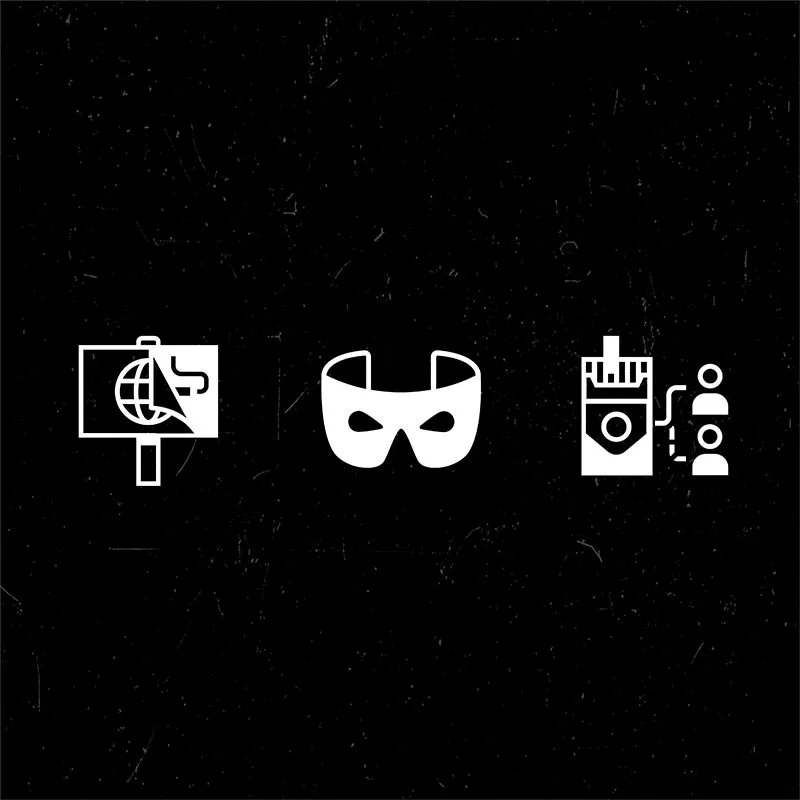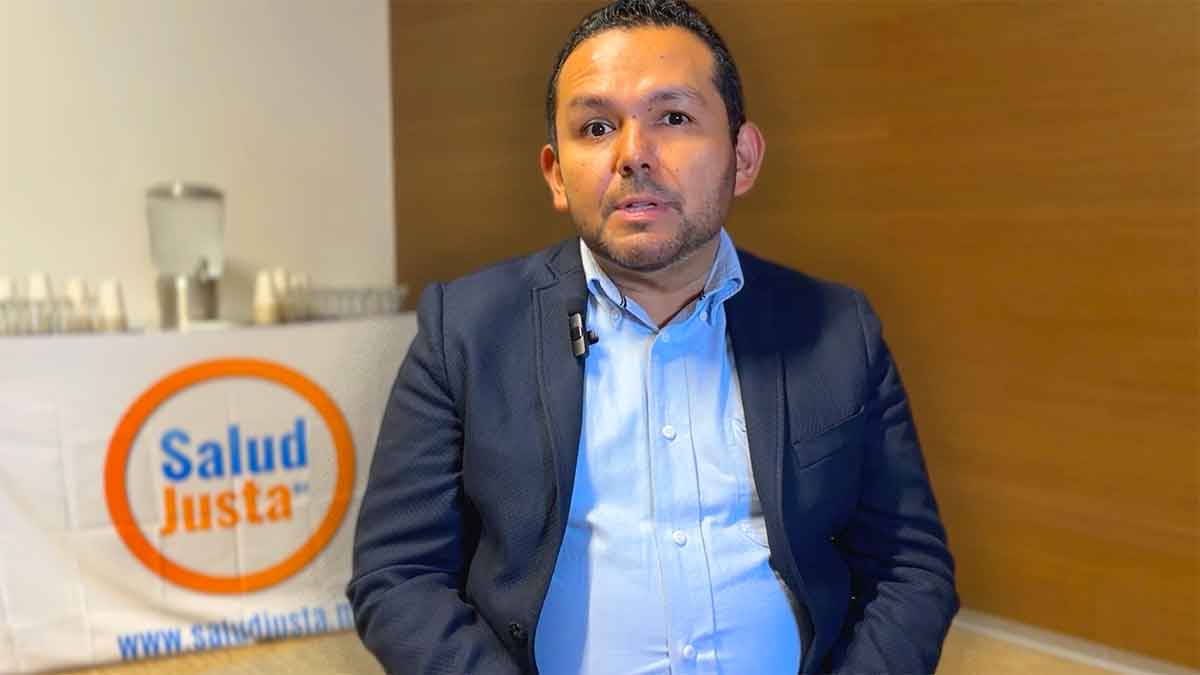- Resources
- News
-
-
Get Email Updates
Sign up for STOP's emails and never miss an update on our latest work and the tobacco industry's activity.
-
Get Funding
Ready to tackle industry interference? You could be eligible for a grant.
-
Share a Tip
Do you have information on tobacco industry misconduct in your country? Let us know.
-
Get Email Updates

A recently published report from Bulgaria highlights new examples of a sneaky tobacco industry tactic. Through five in-depth case studies, the Smoke-Free Life Coalition, supported by STOP, shows how the industry gave money to law firms, think tanks, news outlets and even patient advocacy groups that, in turn, publicly relayed pro-industry messages that prioritize tobacco profits over health. (Read the report in Bulgarian or English.)
As the report explains, industry-friendly messages—for example, that raising tobacco taxes will lead to more illicit activity—often start with large tobacco corporations, pass through intermediaries and end up in front of the general public, mass media and decision-makers. The result? Weaker tobacco control policies and a public that (sometimes unintentionally) supports the tobacco industry—despite the devastating toll it takes on its health and well-being.
The cost of promoting industry messaging is high in Bulgaria, which had the highest tobacco consumption in the EU in 2019. As of 2017, life expectancy was shorter in Bulgaria compared to the rest of the EU, with deaths from cardiovascular disease and stroke sitting far above EU averages. Smoke-Free Life Coalition’s detailed report highlights the urgency and importance of ending Big Tobacco’s influence over health policies—starting at the beginning.
Where it begins
Tobacco industry influence starts at the top, with tobacco companies themselves. Why does the tobacco industry use intermediaries, or allies, to communicate its narrative? In some cases tobacco companies can’t effectively promote their pro-industry messages themselves due to implementing tobacco marketing restrictions set out in the World Health Organization Framework Convention on Tobacco Control (WHO FCTC), a global treaty to reduce tobacco use. Other times, they know their tarnished reputation will contaminate their messaging and audiences won’t trust or be receptive to what they’re saying. And in other cases, tobacco companies use intermediaries to help amplify a message they’re also promoting.
According to the report, after being formulated by tobacco companies, pro-industry narratives trickle down to the intermediaries. The report authors identified multiple intermediaries who accepted industry money and subsequently promoted pro-industry arguments. At first glance, these intermediaries seem to bear no relation to the industry, and have innocuous or even positive-sounding names. For example, the National Patient Organization (NPO), the publication “Science of Cardiology,” the Center for the Study of Democracy, the Institute for Market Economics (IME) and the University of National and World Economy (UNWE) were all identified as tobacco industry intermediaries in the report. When messages come from seemingly credible, independent sources such as these, there’s a risk that people will take them at face value.
The pro-industry messages are then disseminated via these intermediaries as recommendations and conclusions that often serve the industry’s interests. For example, the NPO, which received tobacco industry money in 2018 and 2019, has become “a zealous advocate of its heated products,” declaring them “less harmful” than cigarettes, despite WHO warnings against such claims. This is in line with industry priorities to promote its heated tobacco products (HTPs).
Several of these intermediaries have also supported the industry’s stance against raising tobacco taxes, amplifying the industry argument that raising tobacco taxes will increase the illicit tobacco trade. The IME, which received support from PMI IMPACT—a Philip Morris International (PMI) initiative to support the development of projects against illegal trade—publicly advocated for a zero tax rate for HTPs due to their “harm reduction” potential—a public health term co-opted by the tobacco industry to promote its newer tobacco and nicotine products. These are just two of many examples detailed in the report.

…the cost of promoting industry messaging is high in Bulgaria, which had the highest tobacco consumption in the EU in 2019.
Where it ends up
Once industry influence flows from tobacco companies to their intermediaries, and once the intermediaries have dispersed the pro-tobacco messaging, where does it end up? According to the report, it ends up in front of people and entities who can influence and make decisions: the public, media outlets, medical providers and government officials.
The report highlights how medical providers are subject to industry influence whenever they see a PMI logo at a health conference or in a medical periodical published by Arbilis, a publisher of medical content and organizer of health events that accepts PMI sponsorship.
The report also describes how officials within the Ministry of Finance, Ministry of Economy, Ministry of Agriculture and the Customs Agency are all recipients of tobacco industry messaging, via direct contact with industry representatives and their intermediaries. Tax-related recommendations from the intermediaries identified in the report are said to have influenced the low tax rates for HTPs in Bulgaria.
Even students are subject to this influence. Those attending the UNWE are exposed to the results of a project funded by PMI IMPACT, and receive training materials that mention PMI IMPACT and show its logo. Many more examples of this type of influence can be found in the report.
How to stop it
This pervasive form of tobacco industry interference via intermediaries is harmful, as it can influence policies to favor industry profits over public health. But it can be stopped.
The importance of exposing these tobacco industry links cannot be overstated. It is critical that those on the receiving end of intermediaries’ messages clearly understand any financial links to the tobacco industry. And as the report points out, some intermediaries may not realize the harm perpetuating the industry’s narratives can cause, and would reevaluate their connections if they knew.
Even though Bulgaria ratified the WHO FCTC in 2005, sponsorship from the industry is not currently prohibited. Among the report’s many important recommendations, fully implementing Article 5.3 of the WHO FCTC and restricting all forms of sponsorship by tobacco companies would limit the industry’s ability to influence legislation in its favor.
Unless Bulgaria and other countries facing similar interference take these important steps, tobacco industry interests may continue to take precedence over public health.




